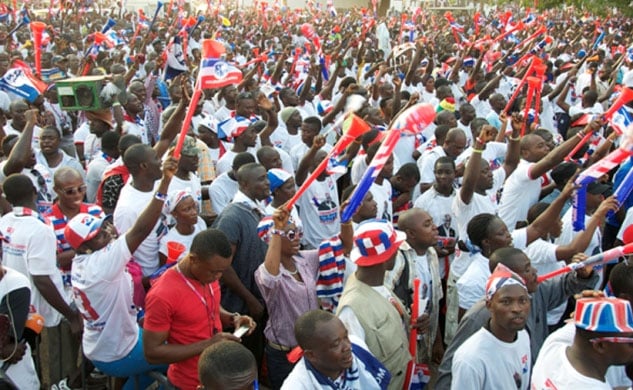More than 5,500 delegates of the New Patriotic Party (NPP) are converging in Accra today, July 19, 2025, for what is widely seen as a pivotal National Annual Delegates Conference — one that could reshape the party’s future and determine its readiness for the 2028 elections.
The conference, which takes place under the theme “Rebuilding Together with Our Values,” comes in the wake of the party’s 2024 electoral defeat and focuses squarely on critical constitutional reforms designed to modernise party structures, democratise internal processes, and restore public trust.
At the heart of the proceedings is a bold proposal to abolish the Special Electoral College, a long-debated mechanism that has been accused of concentrating too much power in the hands of a few elites. In its place, proponents, led by former National Chairman Peter Mac Manu and Evans Nimako, are pushing for a vastly expanded Electoral College.
“The Special Electoral College, per its composition, is not representative, delays the conduct of presidential primaries, and has never served the purpose of minimising undue contestation,” the reform advocates argue in their official submission.
If passed, the new structure would radically open up participation in presidential primaries to include a broader spectrum of the party’s base — from polling station executives and TESCON representatives to past MPs, MMDCEs, ministers, and external branch delegates.
Planning Committee Chairman and First Deputy Speaker of Parliament, Joseph Osei-Owusu, confirmed that more than 50 constitutional amendments will be tabled for discussion. While these proposals are far-reaching, he noted they will not apply to the party’s 2026 presidential primaries unless formally ratified before that date.
“The primaries will be guided by the existing constitution if the new one is not ready,” he clarified.
To maintain neutrality and avoid early jockeying for leadership, the party has imposed a strict ban on campaign-related paraphernalia. “There shall be no billboards, banners, posters, flyers, T-shirts or souvenirs with aspirant branding allowed at the venue or within Accra,” Mr. Osei-Owusu warned. A monitoring team has been deployed to remove and destroy any offending materials.
Political analysts say the stakes could not be higher. Dr. Samuel Kofi Darkwa described the conference as “a critical juncture” in the party’s trajectory, especially after its worst performance since the return to constitutional rule in 1992. He praised the proposed reforms as a meaningful step toward decentralising power and reducing undue influence within the party.
“A larger electoral college would complicate attempts to manipulate outcomes through monetary influence. This shift would reinforce democratic legitimacy and mitigate elite dominance,” Dr. Darkwa noted.
Fellow political analyst, Dr. John Osae-Kwapong, said the conference must serve as a moment of honest introspection. “It’s easy to apportion blame, but more difficult to own the loss and forge a united front,” he said, urging the party to “make peace with each other and with the Ghanaian people.”
Among the key reforms up for debate:
Abolishing Article 13(1)(9) to eliminate the Special Electoral College.
Increasing polling station executives from 5 to up to 15, including new roles and a council of elders.
Replacing single Electoral Area Coordinators with five-member committees.
Granting all female delegates voting rights for electing the National Women’s Organizer.
Lowering the youth wing’s age limit from 40 to 35.
Renaming the Nasara Wing to “Nasara and Settler Organizer” and strengthening its grassroots presence.
Rebranding the National Treasurer as “Chief Fundraising Officer” and consolidating finance oversight under a new committee.
Allowing former MPs, MMDCEs, and CEOs to vote at all levels of the party structure.
Some more contentious proposals will also be discussed, including calls to hold presidential primaries before other internal elections and a recommendation from a faction led by Hon. Kofi Obiri Yeboah to allow the General Secretary to be appointed rather than elected.
The nine-member Constitution Amendment Committee has been tasked with refining the proposals. General Secretary Justin Kodua Frimpong has urged members to embrace the reforms, calling them “critical to modernising the party and securing victory in 2028.”
In addition to the constitutional changes, delegates will review the National Chairman’s statement, the General Secretary’s report, and the National Treasurer’s financial records.
With thousands of delegates gathered and the party’s internal future on the line, today’s conference is seen not only as a test of unity, but a crucial opportunity to rebuild the NPP’s brand — from the grassroots to the national stage — as it charts a course toward political redemption.
Here are the proposals for reforms at NPP delegates conference


